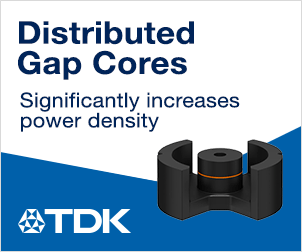Tesla CEO Elon Musk attends the Tesla Shanghai Gigafactory groundbreaking ceremony in Shanghai, China January 7, 2019. REUTERS/Aly Song/File Photo Dec 13 (Reuters) – Tesla Inc (TSLA.O) Chief Executive Officer Elon Musk has sold another 934,091 shares of the electric vehicle maker worth $906.5 million, U.S. securities filings showed on Monday. He also exercised stock… Continue reading Musk sells Tesla shares worth $906.5 million – filings
Tag: Tesla
The Station: Intel eyes an IPO for Mobileye and how Elon influenced Autopilot
The Station is a weekly newsletter dedicated to all things transportation. Sign up here — just click The Station — to receive it every weekend in your inbox. Hello readers: Welcome to The Station, your central hub for all past, present and future means of moving people and packages from Point A to Point B. This… Continue reading The Station: Intel eyes an IPO for Mobileye and how Elon influenced Autopilot
Kronos hit with ransomware, warns of data breach and ‘several week’ outage
HR management platform Kronos has been hit with a ransomware attack, revealing that information from many of its high-profile customers may have been accessed. UKG, Kronos’ parent company, said the vital service will be out for “several weeks” and urged customers to “evaluate and implement alternative business continuity protocols related to the affected UKG solutions.”… Continue reading Kronos hit with ransomware, warns of data breach and ‘several week’ outage
Tesla releases new charger faceplates that matches car colors – holiday gift for Tesla owners?
Tesla has released a new product today – Wall Connector faceplates that match its vehicle paint colors. Is it a perfect holiday gift for Tesla owners? Tesla’s Wall Connector – which is used as a home charging station and for the automaker’s Destination Charging network – is a very popular charging station due to its… Continue reading Tesla releases new charger faceplates that matches car colors – holiday gift for Tesla owners?
Researchers trigger new exploit by renaming an iPhone and a Tesla
Security researchers investigating the recently discovered and “extremely bad” Log4Shell exploit claim to have used it on devices as varied as iPhones and Tesla cars. Per screenshots shared online, changing the device name of an iPhone or Tesla to a special exploit string was enough to trigger a ping from Apple or Tesla servers, indicating… Continue reading Researchers trigger new exploit by renaming an iPhone and a Tesla
Tesla expands system to prevent gas cars from ICEing Superchargers
If there’s one thing that will make a greenie see red, it’s pulling up to a public charging stall only to find that it’s been ICEd out by a gas-burning vehicle (which always seems to be a giant truck or SUV with bellicose bumper stickers). In 2019, Tesla began testing anti-ICEing devices that pop up… Continue reading Tesla expands system to prevent gas cars from ICEing Superchargers
Elon Musk Says That Politically, He’s a “Utopian Anarchist”
Tesla CEO Elon Musk isn’t one to follow rules, particularly when he thinks they’re bogus. The billionaire likes to envision a world, or perhaps a much smaller society on Mars, in which everybody can do as they please without a greater hierarchy of power. “If there’s a utopia where people have access to any goods… Continue reading Elon Musk Says That Politically, He’s a “Utopian Anarchist”
Best Space Gifts: Brilliant Ideas For Astronomy Lovers
With so much variety in the galaxy, it may seem daunting to find the right gift for your space-obsessed friend or family member. While space is vast and complex, you definitely don’t need a physics degree to make the right gift choice. There are plenty of options out there that can range from sparking a… Continue reading Best Space Gifts: Brilliant Ideas For Astronomy Lovers
Apple inches closer to $3 trillion market value
An electronic screen displays the Apple Inc. logo on the exterior of the Nasdaq Market Site following the close of the day’s trading session in New York City, New York, U.S., August 2, 2018. REUTERS/Mike Segar Dec 13 (Reuters) – Shares of Apple Inc (AAPL.O) rose 1% on Monday, bringing the iPhone maker within spitting… Continue reading Apple inches closer to $3 trillion market value
Better Buy: Nio or a 50/50 Split of Lucid and Tesla
Motley Fool Buy These 2 Growth Stocks on the Dip If you’re looking for a company with the potential to grow, in a market with a bright future, investing in growth stocks can be extremely rewarding. Two growth stocks that offer investors a great opportunity to buy on a recent dip include a leader in… Continue reading Better Buy: Nio or a 50/50 Split of Lucid and Tesla


